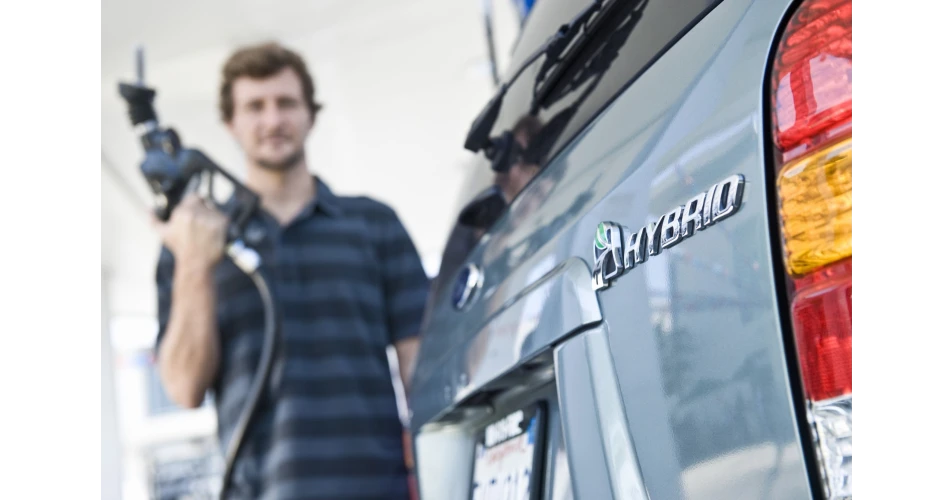A new draft law has been published which underpins the government’s Climate Action Plan and initial viewing may set alarm bells ringing in the Irish motor trade. Contained in a series of measures which will put into law national targets on decarbonisation are plans to ban the sale of new fossil fuel cars by 2030, as well as draft legislation which would stop the granting of NCT certificates to fossil fuel cars by 2045.
The proposals have been published by The Minister for Communications, Climate Action and Environment, Richard Bruton and are the Draft General Scheme of the Climate Action (Amendment) Bill 2019 which will be priority legislation for the new Dáil term.
Unlike previous plans this proposal would put greenhouse gas targets into law and mean the government would be accountable for exceeding these limits, with individual departments facing budget penalties for excess pollution. Minister Bruton said, “We must act now and leave a better, healthier, more sustainable Ireland for future generations.”
In theory the proposals mean that no one will be able to buy a new fossil fuel car from 2030 and from 2045 onwards, such cars would effectively be forced off the road as they would no longer be granted NCT certificates. Such a course of action could have a devastating impact on a garage sector still largely geared to the servicing of petrol and diesel vehicles.
At this stage these are just proposals and must be debated in the Dáil before becoming law. There is little detail especially in relation as to what constitutes a fossil fuel vehicle. The inference of the plan is that all vehicles will be fully electric by 2045, however, even in a 25 year time scale it is hard to see Ireland developing the logistical infrastructure to fully meet this aspiration.
What the proposal does set out is that the Irish government very much see electrification as the future for the automotive sector, although it is less clear on how and it might help the market move in that direction. With vehicle manufacturers moving towards more all electric vehicles, due to environmental regulations, it is clear that all electric vehicles will be an increasingly important factor in the aftermarket in the coming years and pressure for this move may mean change happens quicker than anyone thinks.
So does this spell the end for petrol and diesel vehicles? The answer in Ireland in the coming years is certainly no. Diesel vehicles will once again be to the top sellers in 2020 and it is hard to see the Irish driver’s love affair with diesels ending any time soon especially in rural Ireland. The rise of ultra low emission petrol engines may also give this form of power an extended life. It should also be pointed out that even when vehicles in diesel and petrol form are outlawed from new it will take 10 to 15 years for these to filter out of the aftermarket.
The problem for buyers of diesel and petrol vehicles is that choice of such vehicles is likely to become more limited leading them to consider other options.
When it comes to different options, then it is hybrid, or plug in hybrid power that makes sense for a large percentage of Irish car buyers. Even with improved range, a lack of charging points and longer journeys mean that electric only is not suitable for many rural drivers. Whilst electric vehicles may be suitable for short cycle urban driving it is likely to be hybrid vehicles which will dominate in Ireland for many future years and the mechanical element of these vehicles still requires service and maintenance. It is hard to see how even by the 2030’s and 40’s the Irish government could meet its decarbonisation transport goals without having hybrid as a key factor.
So what does the future hold for the independent garages? In truth it is uncertain. Yes, the influence of vehicle manufacturers and government will see electric vehicles numbers continue to rise fast. Both diesel, and to a lesser extend petrol, vehicle numbers will decline, although it will take many years for these to become insignificant in the aftermarket. But perhaps the biggest factor garages will need to consider in the coming years is the need to service and repair hybrid vehicles which are likely to become the vehicle of preference for many car buyers. As such garages will need to become expert in these newer technologies, but will also need their existing diesel and petrol skills to satisfy ongoing demand.
 The biggest factor garages will need to consider in the coming years is the need to service and repair hybrid vehicles
The biggest factor garages will need to consider in the coming years is the need to service and repair hybrid vehicles
 Richard Bruton, Minister for Communications, Climate Action and Environment
Richard Bruton, Minister for Communications, Climate Action and Environment